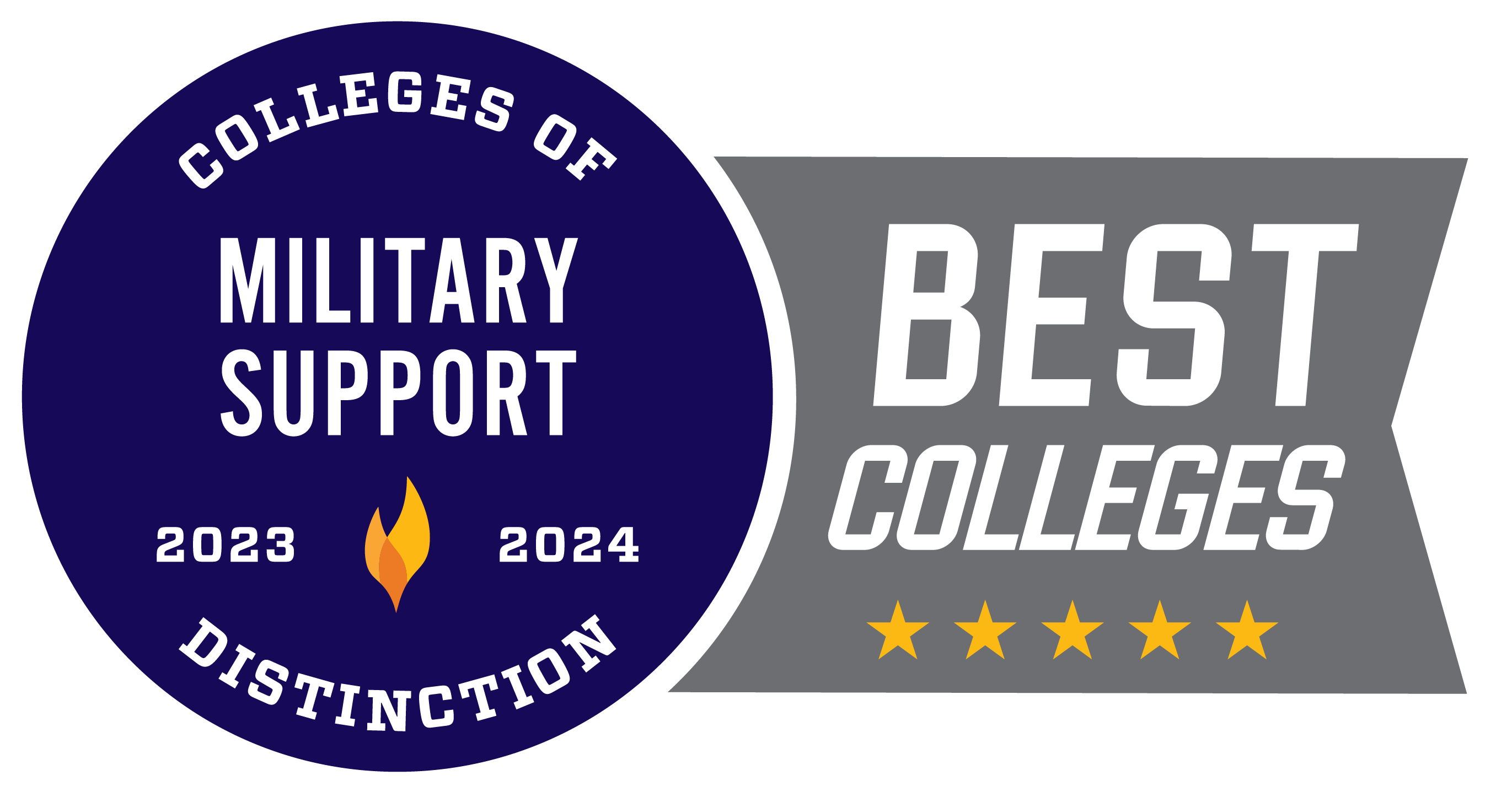Health struggles after toxic exposures prompt advocacy by military veteran
Naz taught Kevin Kozlowski how to successfully "make change for the good"
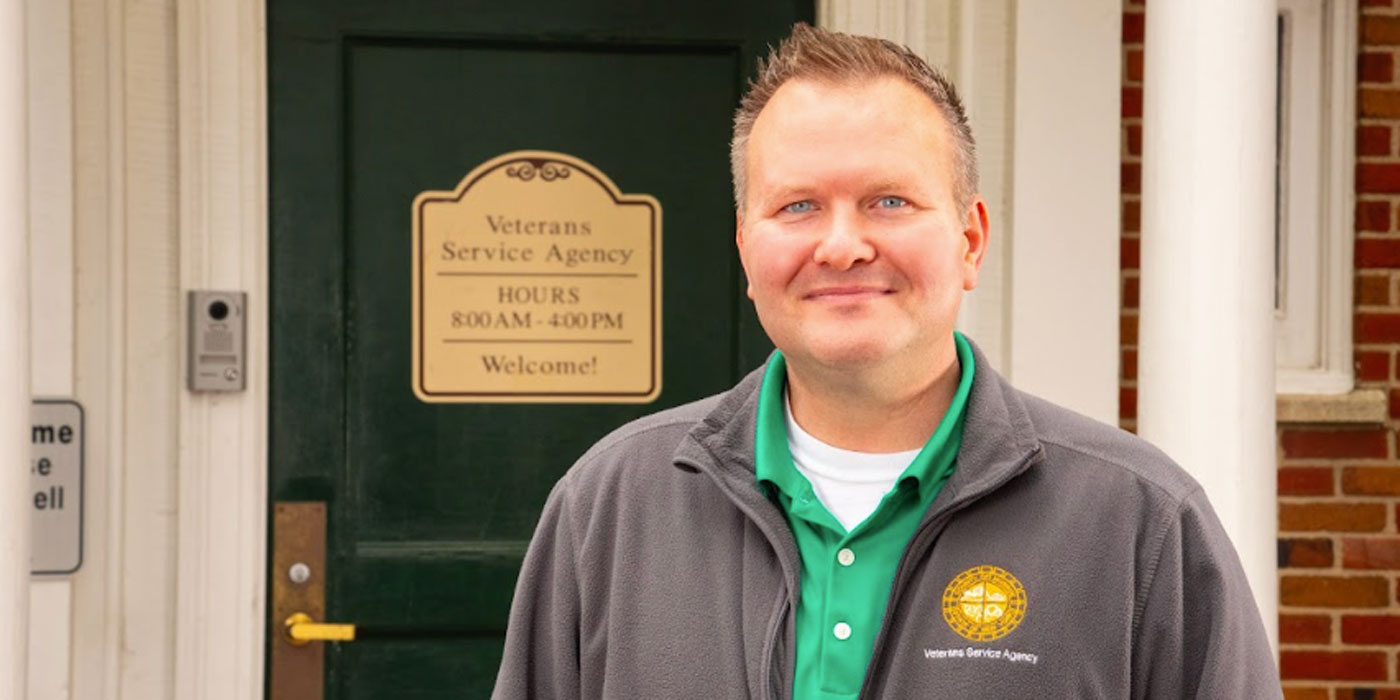
As a kid, Kevin Kozlowski '18 wanted to jump out of airplanes, like the daring paratroopers he saw on the Discovery channel, which "looked so fun."
And it was. As a strong, fit paratrooper, he deployed to Iraq to as part of the U.S. Army 82nd Airborne Division. Over his 6½ years of active duty and 3 years of Army reserves, he says, "I really enjoyed serving my country."
But he didn't expect long-term breathing problems, migraines, and gastrointestinal issues that have been linked to toxic exposures. The military routinely disposed of tires, plastic, metals, uniforms, ammunition, medical waste, and other materials in open burn pits during operations in Iraq and Afghanistan. Such pits could stretch a mile long and burn around the clock.
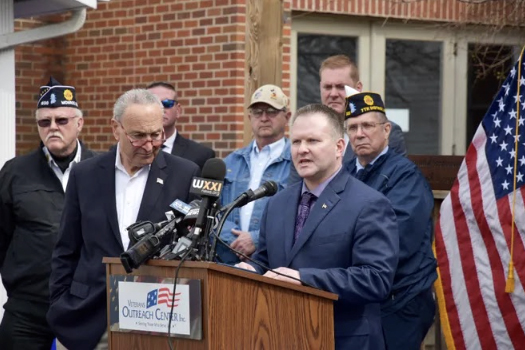
In 2022: Veteran Kevin Kozlowski (at podium) and U.S. Sen. Charles Schumer (left of Kozlowski) successfully pushed to pass the PACT Act to help veterans exposed to toxic burn pits.
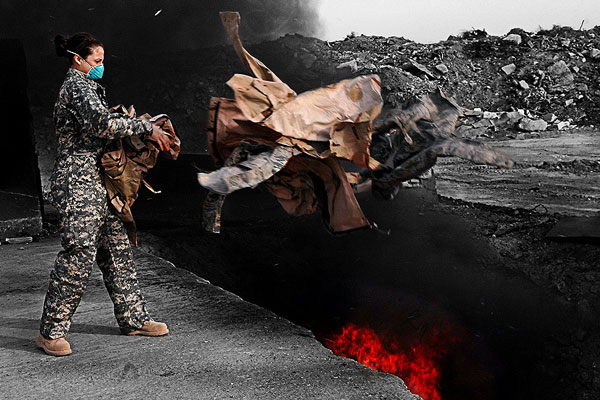
An airman tosses unusable uniforms into a burn pit at Balad Air Base, Iraq, in 2008. Image by Senior Airman Julianne Showalter, USAF.
Burn pits "are illegal in the United States for a reason," Kozlowski says. "It's not healthy."
Thousands of veterans experienced similar symptoms. Science pointed toward a connection to the environmental health hazards. But the Department of Veterans Affairs consistently denied toxic exposure claims.
Kozlowski spoke out — as did other veterans, lawmakers, and activists such as comedian Jon Stewart — to expedite and ensure justice for generations of veterans. The federal PACT Act passed in 2022, the largest expansion of benefits to veterans and survivors in more than 30 years. The landmark legislation extended Veterans Affairs health care and benefits to veterans with conditions related to burn pits and added dozens of respiratory illnesses and cancers to the list of conditions presumed to be caused by exposure to burn pits, herbicides, and other toxic substances.
In February 2023, PACT Act advocate U.S. Sen. Charles Schumer of New York invited Kozlowski to attend the State of the Union address to Congress as a special guest.
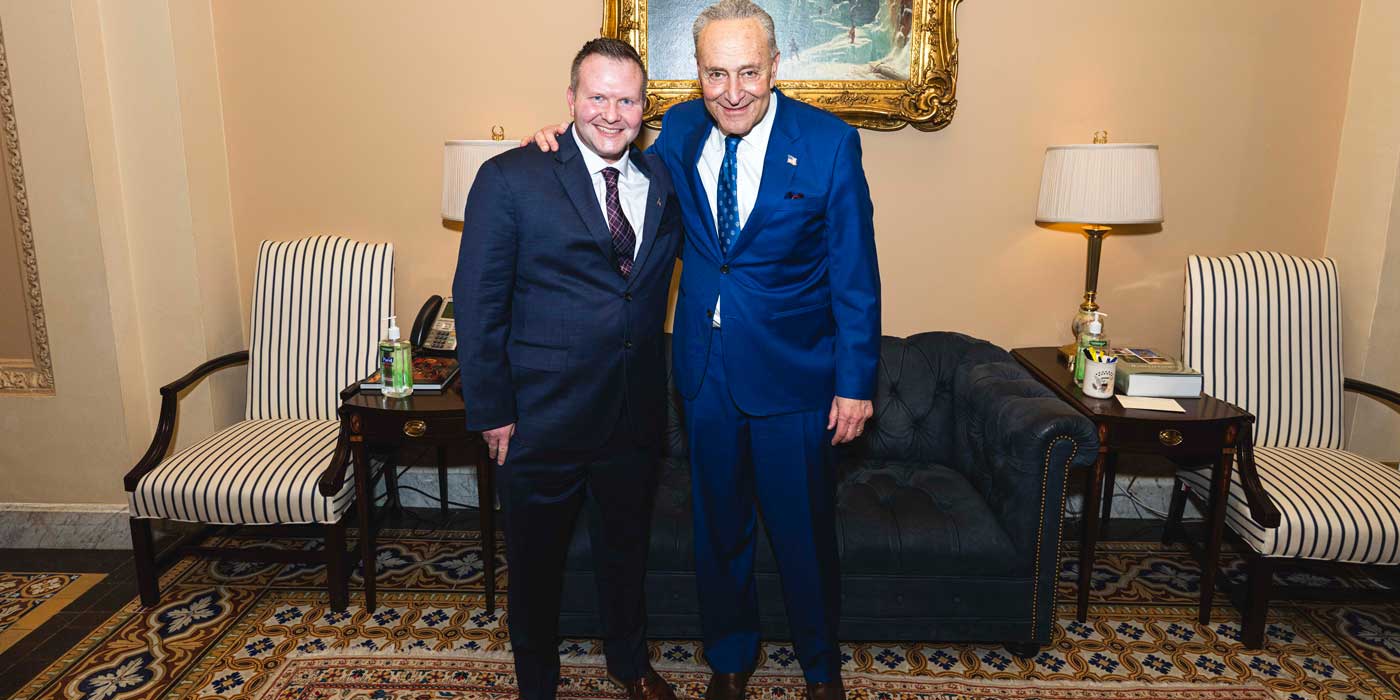
Kozlowski with U.S. Sen. Charles Schumer at the State of the Union address.
Kozlowski’s health problems started soon after he returned stateside in 2010 following a yearlong deployment in Iraq, and his symptoms worsened over the years.
As he pursued a bachelor’s degree in history using his GI Bill® benefits at Nazareth, he easily became winded. “When I was walking up the stairs at Nazareth, I was huffing and my face would turn red,” says Kozlowski, who had never smoked. He suffered debilitating attacks, suddenly unable to breathe in bed at night.
Eventually, he was diagnosed with chronic obstructive pulmonary disease, or COPD, and asthma. He also has joint pain from his paratrooper days. “I’m living in daily pain,” he says. “I’m like at war with pain. It’s really bad. I have trouble sometimes just walking up the stairs, laying down, and getting up. Tying my shoes is getting harder. It’s a struggle.”
The grandson of two military veterans, Kozlowski doesn’t regret his service. He liked being adventurous. He formed close bonds with his teammates. And, he says, “It made me grow up. It taught me good skills — time management, leadership skills, how to talk to people.”
Nazareth — which has military and veteran services including student success support and a suite space for military-affiliated students to gather — helped him transition back to civilian life, he says. “I chose Nazareth because, after reviewing the website and touring campus, I realized it was a very military-friendly school. It was very welcoming. The military veteran population is large, and I was able to connect with a lot of other veterans.”
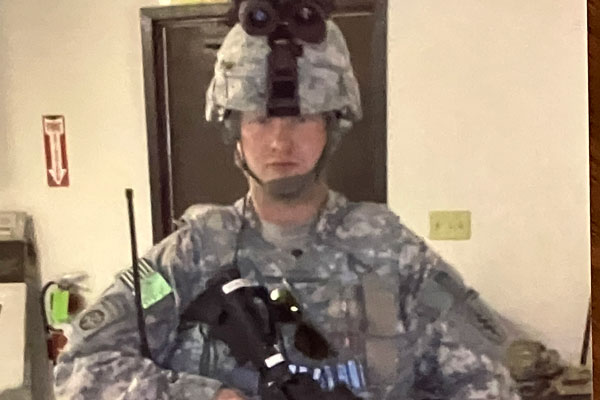
Kozlowski served a yearlong deployment in Iraq.
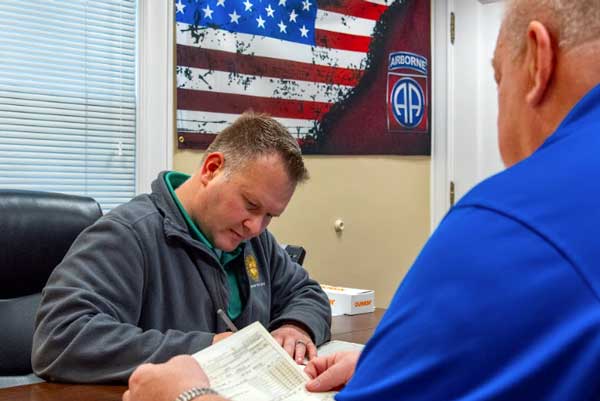
Kozlowski assists veterans and family members through his work, including (wearing blue, at right) Chip McDaniel, a military veteran.
Kozlowski's struggles were not only physical. He said he experienced post-traumatic stress disorder and drank heavily after the trauma of losing friends to combat and to suicide. Turning to counseling and supportive meetings helped him get sober and learn other ways to cope.
"Nazareth kept me mentally stable, I would say. I had a great team of professors that helped me. Dr. Kneeland, Dr. Thibodeau. They really talked to me and showed they were interested in what I had done with my life. It made me feel I had a place to be," he says.
"I want to be a person who can impact others and make change for the good. Nazareth really taught me how to do that — and how to work with others. You have to be able to talk to people." He says that regardless of political beliefs, "We need to work together."
He works for Monroe County as a veteran service officer, assisting veterans and their family members with VA benefits and claims. He's proud of the agency's work, and, he said, "I'm proud of myself, what I'm doing for other veterans. It's very rewarding."
Kozlowski is nearly complete with a master's degree from Nazareth in American studies. "I love this country," he says. "No place is perfect, but I'm really proud of all the politicians working together, especially on this PACT Act, to get it passed. That was a big accomplishment."
An estimated 6.2 million veterans qualify for the PACT Act. In the law's first eight months, only about 450,000 veterans had filed a PACT Act claim. Kozlowski continues to alert veterans and help them get their benefits.
He wants to be known as someone who made a difference. "I hope 100 years from now, someone from Naz will be looking at a book or article and say, 'Kevin Kozlowski, he really did a good thing for the veterans and their family members.'"
Being a changemaker
Kozlowski's advice:
- "If you want to create change ... go for it. Don't be shy. Listen to others. Don't be afraid to fail. If you do fail, its ok, you learn from failure. Take advice. Go out there and do it."
- "I'm a true believer that anybody can be anything they want to be. You just have to put your mind to it and stay focused and learn from others."
- "To create change, you have to be willing to work with other people, regardless of what they believe in. Our country is divided right now and it's very sad and frightening to me. Everybody is entitled to their own beliefs. Understand their side and take ideas from each other and meet in the common good to create change."
